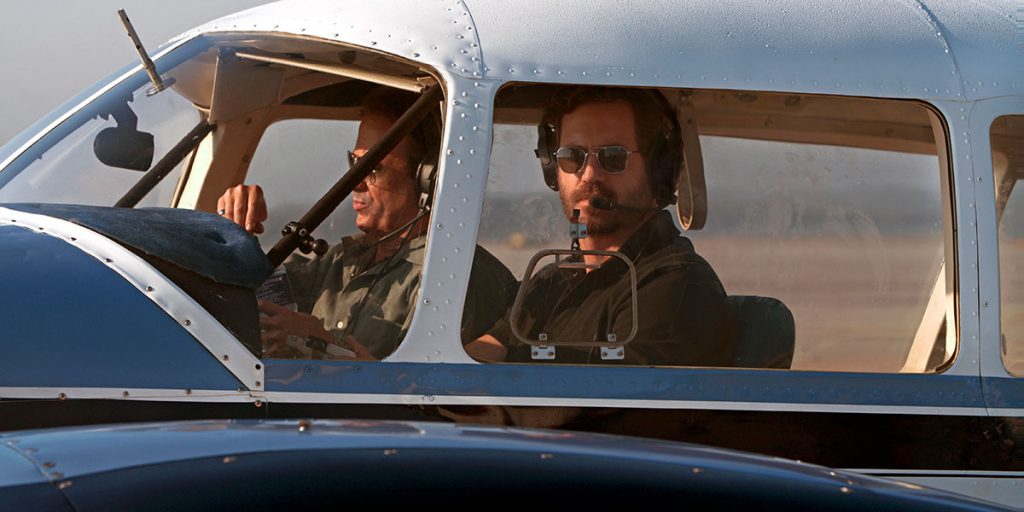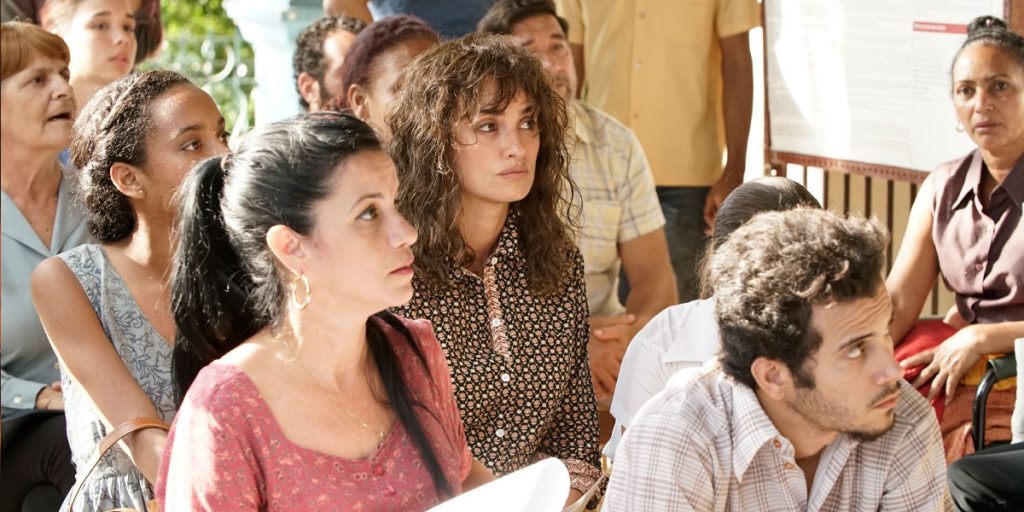Wasp Network sees a muddled, messy narrative overwhelm the strong components that could have led to a good spy story.
I have always been a sucker for the spy genre. Perhaps it is from seeing James Bond movies on constant TV loops as a kid, or my personal interest in modern history and the Cold War (history was my major in college). Or perhaps it is something more visceral – there is a natural compelling tension to subterfuge. Somehow, Netflix’s Wasp Network manages the sad feat of defusing that natural tension despite a potentially fascinating subject matter: Cuban spies embedded in 1990s Florida.
Let us delve into how director Olivier Assayas (Personal Shopper, Carlos) achieved such a fatal misfire. The movie gets off to a strong start. Early scenes are laser focused on two characters: Rene Gonzalez (Edgar Ramirez of Carlos and Hands of Stone) and Juan Pablo Roque (Wagner Moura, best known as Pablo Escobar in Netflix’s Narcos). Gonzalez, a pilot by trade, begins the film by stealing a plane to escape Cuba for Miami. Upon his arrival, he is greeted with great ceremony. His natural English skills and American heritage – he was actually born in Chicago – allow his denunciations of Castro’s regime to resonate and garner him some measure of attention. He fast finds a job as a pilot, dropping supplies to Cuban refugees attempting to escape the island. It makes for a fast-moving, compelling initial arc. Ramirez is good enough in the role, but he simply seems like a flatter, less interesting actor in English. In Spanish, he is vibrant and energetic and passionate. When he switches languages, he forever feels monotone. He remains an impressive screen presence, but this is perhaps the first time I have been able to put a finger on why his American movie making career has felt so disappointing after his breakthrough in Assayas’ own Carlos.
Thanks to Assayas’ confident sense of framing and color, Gonzalez’s narrative is lovely to behold. From Cuban neighborhoods to Miami villas to the open ocean, the movie paints a lovely picture. The Cuban neighborhoods are noteworthy, here, as Assayas was granted permission to film in Cuba. It is a stark difference from the newsreel footage and grainy pictures we are accustomed to seeing from the island.

Roque is a compelling figure too, in his own right. Roque, at least initially, feels like the dark side version of Gonzalez. His introduction – a swim from Cuba to Guantanamo Bay – is an effective character beat, and his prompt seduction by the more illicit sides of the Miami lifestyle suit the character. While Moura has immense charisma which almost makes the role work, he cannot help but carry a constant dismissive smirk. Any mystery about the character’s arc is lost. His most frequent scene partner is the talented Ana de Armas, who is utterly wasted here in a thankless role as his love interest. She is saddled with some truly hoary dialogue and cannot elevate the sort of stock role most often seen in trashy gangster movies.
Wasp Network’s “twist,” if you can call it that, arrives at about the film’s halfway mark – as Netflix’s own description of the film spoils – this is a spy picture. Even an extremely peripheral knowledge of the underlying true story would reveal that we are following Cuban spies. So, of course, Gonzalez, Roque, and the hodgepodge of other character Assayas throws at the viewer are embroiled in a series of relentlessly twisting allegiances. The problem is that it is tiring and utterly inessential.
One potentially exciting sequence sees Cuban MiGs attack supply aircrafts, but all tension is lost by the lack of any characters with whom the viewer has even a remote connection. The more actors show on screen, the less essential everything feels. The film’s action climax – a series of bombs set off throughout Miami – occurs after a crippling malaise of irrelevance has overcome the proceedings. The movie’s back half is heavily dependent on a miscast Gael Garcia Bernal, who is ineffectual as the Cuban spymaster in charge of the titular Wasp Network. Assayas’ technical acumen never waives, but his storytelling skills are completely overwhelmed by the countless moving pieces he attempts to juggle.
The single performer who comes out of this most unscathed is Penelope Cruz. She plays Gonzalez’s wife, left behind in Cuba with a young daughter. Though the practical timeline of her arc makes no sense, Cruz is able to find humanity in a woman attempting to handle raising a child in a world that believes her husband is a traitor. It is a good performance overwhelmed by so much excess around it. A film laser-focused on her life, left behind by her husband in 1990s Cuba, seems like the story Assayas really should have told.
Wasp Network is now available to watch on on Netflix.

